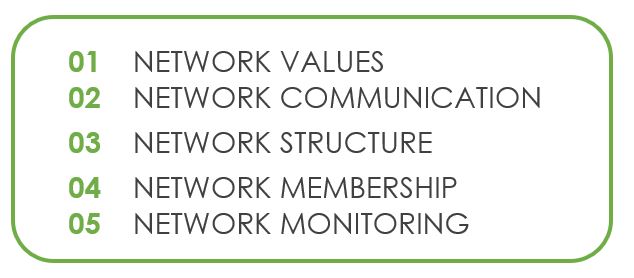
GOVERNANCE AND ACTION PLAN: ECOLABNET’S Model for long-term sustainability
Ecolabnet project partners from six Baltic Sea Region (BSR) countries aims to create a network of service providers to support development of eco-innovations among manufacturing small and medium sized enterprises (SME). Therefore, Ecolabnet governance model and action plan works as a main guide for the long-term sustainability of the network.
The main objective of this document is to describe internal communication and management procedures to promote collaborative eco minded expert community. Ecolabnet partners and future community members will use this model to plan, prepare and manage joint collaboration initiatives and projects between Research, Development and Innovation (RDI) service providers, SMEs or intermediary organisations.
This governance model will be evaluated and updated regularly to ensure that networks activities and resources are aligned with the needs of its members. The success of Ecolabnet will depend on the active participation and collaboration of its members or relevant partners that will result in effective transfer of experience and knowledge.
Key governance elements and procedures. Ecolabnet team will use the circle of five inter-related ECOLABNET governance elements that will be aimed to guide network towards successful practices.

Network values. There are few goals that Ecolabnet governance model seeks to address:
- Development of new partnerships between Ecolabnet members will become more than just collaboration to create sustainable eco-innovations. It will be about promotion of equal responsibilities to reach the highest results that could not be accomplished independently.
- Improved cooperation capabilities: ECOLABNET will strengthen collaboration between RDI facilities, intermediary organisations, and SMEs across the countries of BSR by creating understanding about the needs of both private and public actors.
- Improved capabilities for sustainable eco-innovation development and commercialisation among manufacturing SMEs. Cross-sectoral and multilevel approach will boost close collaboration opportunities between intermediary actors.
Network management & communication. Change oriented and sustainable management of international Ecolabnet community will be a collective activity. Moreover, this way each member will have an opportunity to contribute to development.
Successful internal collaboration of members will also be supported by constant promotion of their services and achievements in eco-innovation development. It will be achieved via yearly meetings (online conference or network meetups), where all members will have an opportunity to tell their stories within eco-innovation.

Network structure. Visionto create a network of service providers that can support and guide eco-innovation development in manufacturing SMEs will always have few barriers and challenges that will be faced by the members such as lack of capital, specific knowledge & external experience or even uncertainty about the market needs. This conclusion was made based on internal and external reports carried out by Ecolabnet project team in 2019-2020. However, these challenges could be solved with the right expertise and infrastructure. We classify potential members and eligible organizations as follows:
- Small & Medium-sized Enterprises (SMEs) & other companies, which seeks to promote development and commercialization of sustainable eco-innovation and services.
- Start-ups, start-up accelerators, business angels, hubs that seek transnational cooperation opportunities between actors in various industries.
- Intermediary organisations (IO’s), which have a key role in creating a strong and long-lasting connection with SMES and disseminating the results in BSR countries.
- Cluster networks & Consortium organizations formed to achieve specific, common one-time goals and projects (it may be formed in order to access grants in BRS region as well).
- Research, Development and Innovation Institutions (RDI’s) which seek support SMEs by promotion and transfer of knowledge from various research findings.
Network membership. All new members can be approached by current members with the interest to promote organisations services. However, all interested companies can approach Ecolabnet network via its web page or national contact points that consist out of primary network members in each country.
In this case specific contact points will evaluate if candidate has needed expertise, infrastructure, and competences. If candidate and provided services is eligible these national contact points will redirect all candidates to Ecolabnet’s Digital Collaboration Tool for further registration.

Network monitoring. ECOLABNET’S performance monitoring and evaluation procedures will ensure continuous development of the network. It will be done with the aim to inform all the network (specific members, project team and main stakeholders) about the progress achieved over the period or in specific tasks.
- Constant monitoring and evaluation procedures will also provide an overview about Ecolabnet results (outputs, outcomes, and objectives within partnerships) and general benefits of the network. Gathered data and pre-determined indicators of members performance will be systematically collected and analysed by each partner country (selected from the project team) to track situation in the network. Results will be discussed in planned partners meetings.
- Service quality indicators (developed in Digital Collaboration Tool) will be a rating system next to each service available for the members. It will provide Ecolabnet community with an opportunity to tract the quality of services provided in the network. This kind of monitoring will involve simple gathering of data (during surveys) and day-to-day input provided by all members.

Download ECOLABNET’S GOVERNANCE AND ACTION PLAN: Model for long-term sustainability HERE:
Download ANNEX I _ A leaflet for potential members HERE:
- by Deivydas Čepas on 2021-07-01

